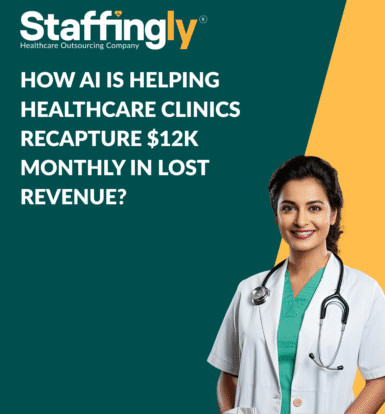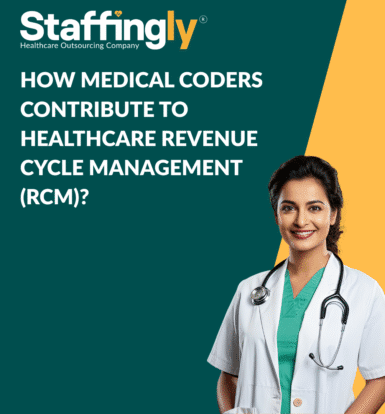On-Demand Outsourcing BPO Services for Healthcare Providers With 24/7 Coverage!
Save up to 70% on staffing costs!
Browse Specialty Staffing Services
Why Is Interoperability Important in Electronic Prior Authorization?
Prior authorization (PA) is a process used by insurance companies to ensure that medical services, medications, or procedures are medically necessary and covered under a patient’s health plan. While it was designed to control healthcare costs and encourage appropriate care, prior authorization often becomes a bottleneck, delaying treatment and frustrating both providers and patients. Electronic Prior Authorization (ePA) has been introduced as a solution to reduce paperwork, speed up approvals, and bring efficiency into the process. However, the full benefits

Why Do Doctors Face Repeated Denials in Prior Authorization?
Prior authorization (PA) is a process where healthcare providers must obtain approval from insurance companies before delivering specific treatments, medications, or services. While its main purpose is to control costs and ensure medical necessity, it often becomes a frustrating barrier for doctors and patients. One of the biggest challenges providers face is repeated denials during prior authorization. These denials not only delay patient care but also increase the workload for doctors and their staff. This article explains the main reasons

How Can Doctors Manage Urgent Cases When Prior Authorization Is Pending?
Prior authorization (PA) has become a common step in healthcare, especially in the United States. Insurance companies require PA before certain tests, treatments, procedures, or medications can be given to patients. The aim is to control costs and ensure medical necessity, but the process often creates delays. For doctors, the biggest challenge arises when they face urgent or time-sensitive cases. When a patient’s health is at risk, waiting for insurance approval can compromise care. So, how can physicians manage these

How Can Hospital Billing Processes Be Made More Efficient?
Hospital billing is one of the most important parts of healthcare operations. It directly impacts a hospital’s revenue, patient satisfaction, and overall financial stability. However, billing processes are often complex, involving insurance claims, coding, patient communication, and compliance with regulations. Any delays or errors in billing can result in revenue loss and dissatisfied patients. Making hospital billing more efficient is not just about faster payments it’s also about improving accuracy, reducing errors, and ensuring patients clearly understand their bills. Let’s

How Prior Authorization is Affecting the Delivery of Care?
Prior authorization (PA) is a process where healthcare providers must get approval from insurance companies before offering certain treatments, medications, or services. While the purpose of prior authorization is to control costs and ensure appropriate care, it often creates delays and barriers for both patients and healthcare providers. This article explores how prior authorization affects the delivery of care, the challenges it creates, and its impact on patients and providers. The Purpose of Prior Authorization Insurance companies introduced prior authorization

How AI is Helping Healthcare Clinics Recapture $12K Monthly in Lost Revenue?
Healthcare clinics face a growing challenge: lost revenue. Missed appointments, billing errors, inefficient administrative processes, and poor patient engagement collectively drain substantial income. On average, each missed appointment can represent hundreds of dollars in lost revenue, and uncollected small claims can add up to thousands per month. Artificial Intelligence (AI) is emerging as a powerful solution to these challenges. By streamlining operations, automating tasks, and analyzing data to identify revenue recovery opportunities, AI enables healthcare providers to reclaim significant portions

How Medical Coders Contribute to Healthcare Revenue Cycle Management (RCM)?
Healthcare organizations operate in a complex ecosystem where accurate documentation, billing, and compliance are critical for financial sustainability. Revenue Cycle Management (RCM) plays a pivotal role in ensuring that providers receive timely and accurate reimbursement for services rendered. At the core of this process are medical coders, whose expertise directly influences the efficiency and effectiveness of RCM. Understanding Revenue Cycle Management (RCM) Revenue Cycle Management is the process by which healthcare providers track patient care from initial appointment scheduling through

ECW AI RCM: Healthcare Professionals Share Real Experiences with “$99/Month” AI Baby Sitting
Practice management forums reveal what ECW AI RCM actually costs—and whether it works “Hoping for Clarification on $99/Month RCM AI Pricing” Healthcare professionals are asking tough questions about ECW’s AI revenue cycle management offering. One practitioner summed up the confusion: “I currently use ECW as an EHR only, not for PM. From what I understand, to get access to the RCM AI, I’d first need to add PM, which comes with the 2.9% of collections fee, and then it would
 Book a Demo to Build Your Team Today!
Book a Demo to Build Your Team Today!


 Read Case Studies
Read Case Studies 



 Virtual Medical Assistants
Virtual Medical Assistants



